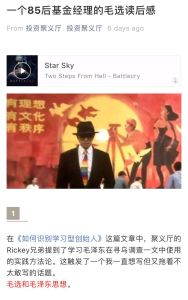
What Investors and Businesspeople Can Learn from “The Selected Works of Mao Zedong”
Read or listen offline
Amazon KindleRecommendation
Mao Zedong, or Chairman Mao, is arguably one of the most influential figures in history. The Selected Works of Mao Zedong details how the political theorist, military strategist, poet and visionary dealt with all sorts of thorny issues. The author of InvestJYT, a WeChat wemedia account that logs observations and thoughts on investment, spent half a year reading the five-volume collection of essays and explains the appeal the book has for investors and entrepreneurs in China. What readers may interpret as propaganda the author explains as necessary to boost morale during difficult times or, when ingratiating toward the beliefs and philosophies of the Soviet Union, as tactics to win powerful allies. Though you might want to approach anything written by Mao with skepticism, the article does an excellent job of looking at Mao's political and military campaign through a business lens. Mao's essays were the go-to guidebook for entrepreneurs and businesspeople in the early 90s through early 00s. However, as Huawei founder Ren Zhengfei decided, the book's leadership advice is helpful in building scale initially but not enough in the long run. Ren eventually moved away from Mao's strategies, implementing IBM's management styles instead. Nevertheless, this report would be helpful for anyone who seeks investment or business success in China.
Summary
About the Author
InvestJYT is a WeChat public account that records ideas and reflections on investment in the most reader-friendly language.
















Comment on this summary